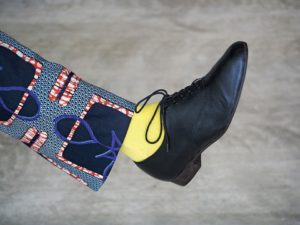
Apparently I’m a pantser. Who knew? I certainly didn’t when I decided in a rash moment of hubris to switch from travel writing to fiction. Whenever I’d answered authorly interview questions from those kind enough to feature me on their blogs and we’d got to the plotting or pantsing bit, I was easily able to sidestep the issue. When you write what really happens, it’s no different to ending an eventful working day in the pub, each incident becomes a funny story and eventually there’s a bookful.
This would be different though. This would be ‘proper writing’. But how do you start when you don’t yet know if you are a plotter or a pantser? Obviously you start with several hours learning your way around Scrivener. Oh look, you can put notes on a cork board! And you can develop your characters in individual files. Let’s do a corkboard for the whole thing…plan out where the plot points are, space out the beats and the cliffhangers correctly… Continue reading “A Non-Fiction Writer Switches to Fiction”

 Okay, I’ll preface this whole thing by admitting that I am a pantser. (Dang MS Word keeps wanting to change that to punster. Hmmm…) I do not outline, I do not do chapter synopses, I do not like green eggs and ham. (Sorry; keep getting sidetracked.) I may not know where the end or even the middle of my book is going to go. I get attacked by an idea, let it stew for a bit (anywhere from hours to days) and if it doesn’t evaporate with the morning coffee, I sit down and start writing.
Okay, I’ll preface this whole thing by admitting that I am a pantser. (Dang MS Word keeps wanting to change that to punster. Hmmm…) I do not outline, I do not do chapter synopses, I do not like green eggs and ham. (Sorry; keep getting sidetracked.) I may not know where the end or even the middle of my book is going to go. I get attacked by an idea, let it stew for a bit (anywhere from hours to days) and if it doesn’t evaporate with the morning coffee, I sit down and start writing. We humans seem to thrive on dichotomies. Descartes kick-started the mind/body dichotomy with his famous thought experiment in which he concluded ‘I think, therefore I am’.
We humans seem to thrive on dichotomies. Descartes kick-started the mind/body dichotomy with his famous thought experiment in which he concluded ‘I think, therefore I am’.